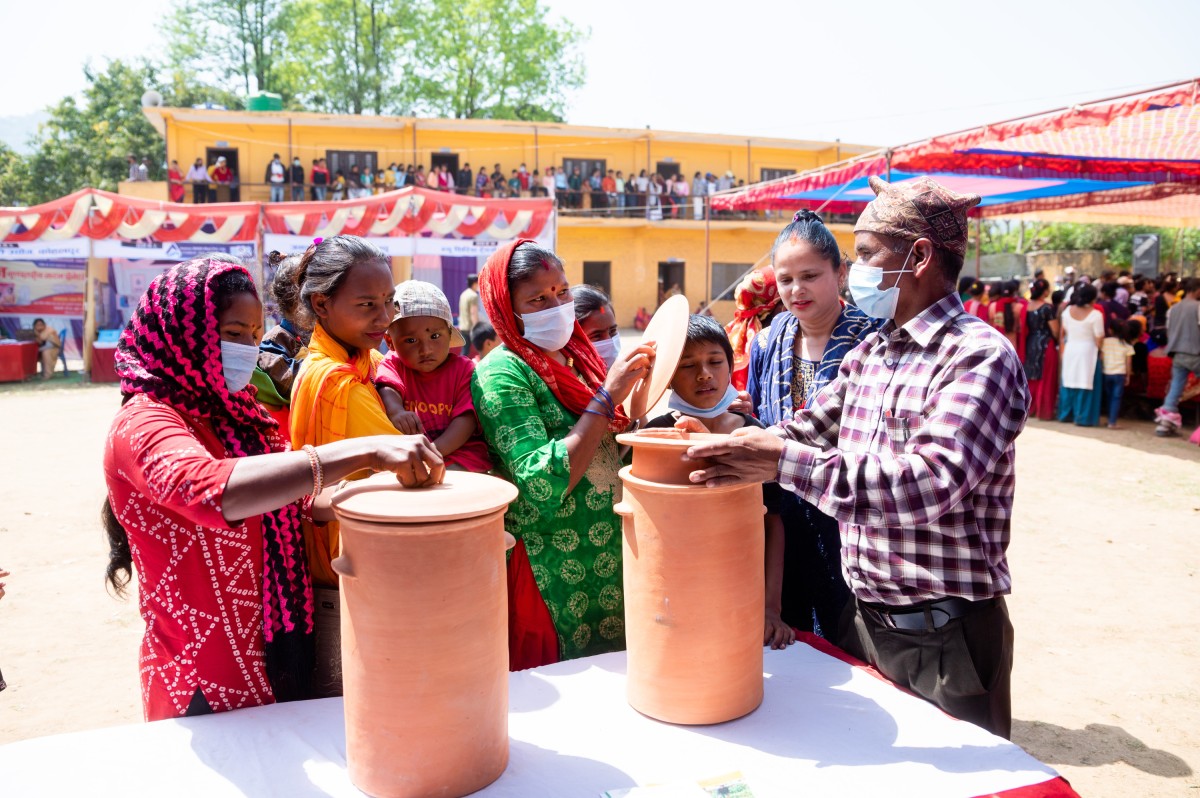World Water Day: the moment for a Water Wake-Up Call
Worldwide, over 2 billion people still do not have access to clean drinking water and 3.6 billion can’t (safely) access a toilet.
That's why the 22nd of March, World Water Day, is the moment to raise awarness for clean drinking water. Not only in the Netherlands but worldwide. Keep an eye out on the pages for updates on our work and that of our partners on World Water Day.
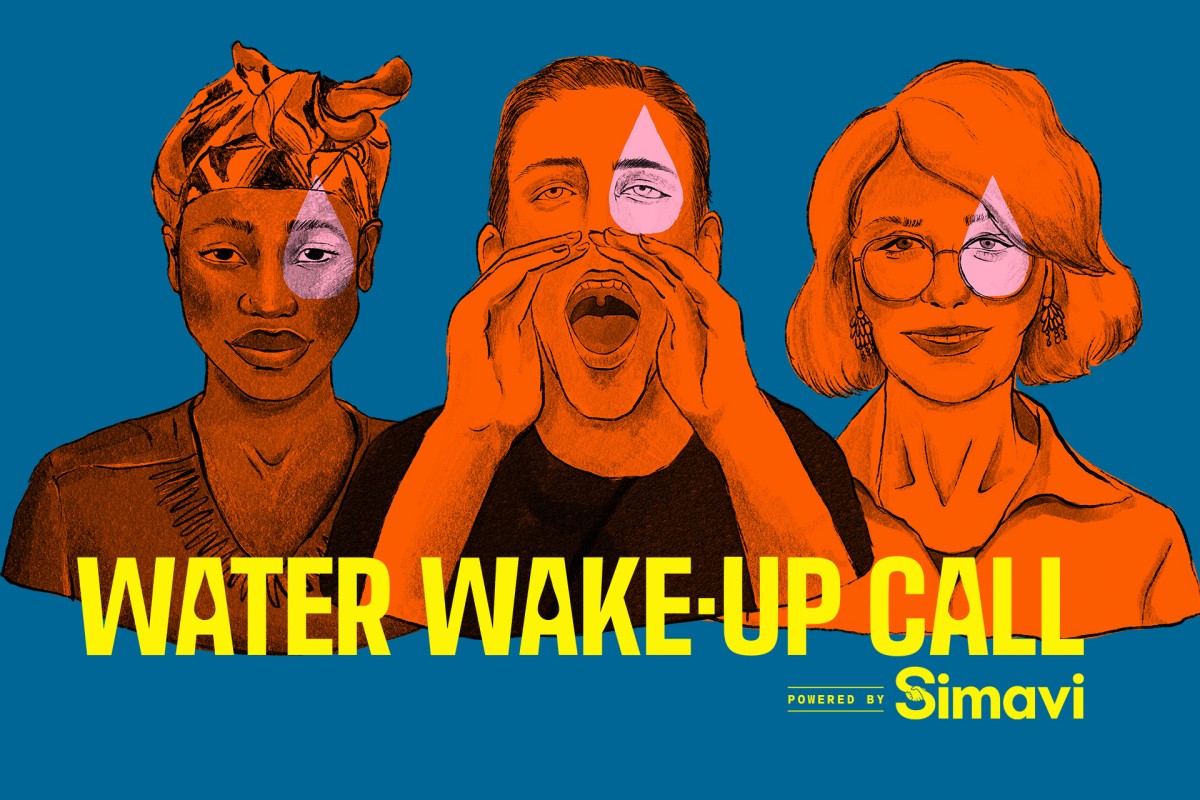
Water Wake-Up Call
Today, on World Water Day, Simavi starts a campaign to give a Water Wake-Up Call. This is urgent because the world is suffering from a global water crisis. Even today, 1 in 4 people lack safely managed drinking water. And climate change will only have further devastating effects on people’s livelihoods, health and economic growth, increasing global inequality.
Therefore we need to act on the water crisis now. And we need to do it together. With the people in the Netherlands, with the Dutch government, with global leaders but also with the women and girls who are already living with the effect that climate change has on the access to water. Not only are they hit the hardest, they are also the key drivers for change, and their voices need to be heard.
Will you help us wake up the Dutch government by signing the petition? (In Dutch)
New direction
Simavi set out to make bold choices when it started a process to redefine its strategic direction. And bold choices have been made. This was necessary since the effects of climate change are felt throughout the world. But hardest by women and girls.
Severe droughts, flooding, intense rainfall and many other effects of a fast changing climate will negatively affect water security around the world. We believe that we need to urgently increase financial and political commitments to overcome the silent water crisis, and women play a pivotal role.
The water crisis is a crisis that cannot be solved without addressing gender equality. Simavi will therefore focus on the human rights to water and sanitation for women and girls. Women and girls should be in the lead and key drivers of change when it comes to sustainable and climate-resilient water management. Simavi believes in locally driven solutions and will position female-led organisations at the heart of change.
On World Water Day we announced our new strategy.
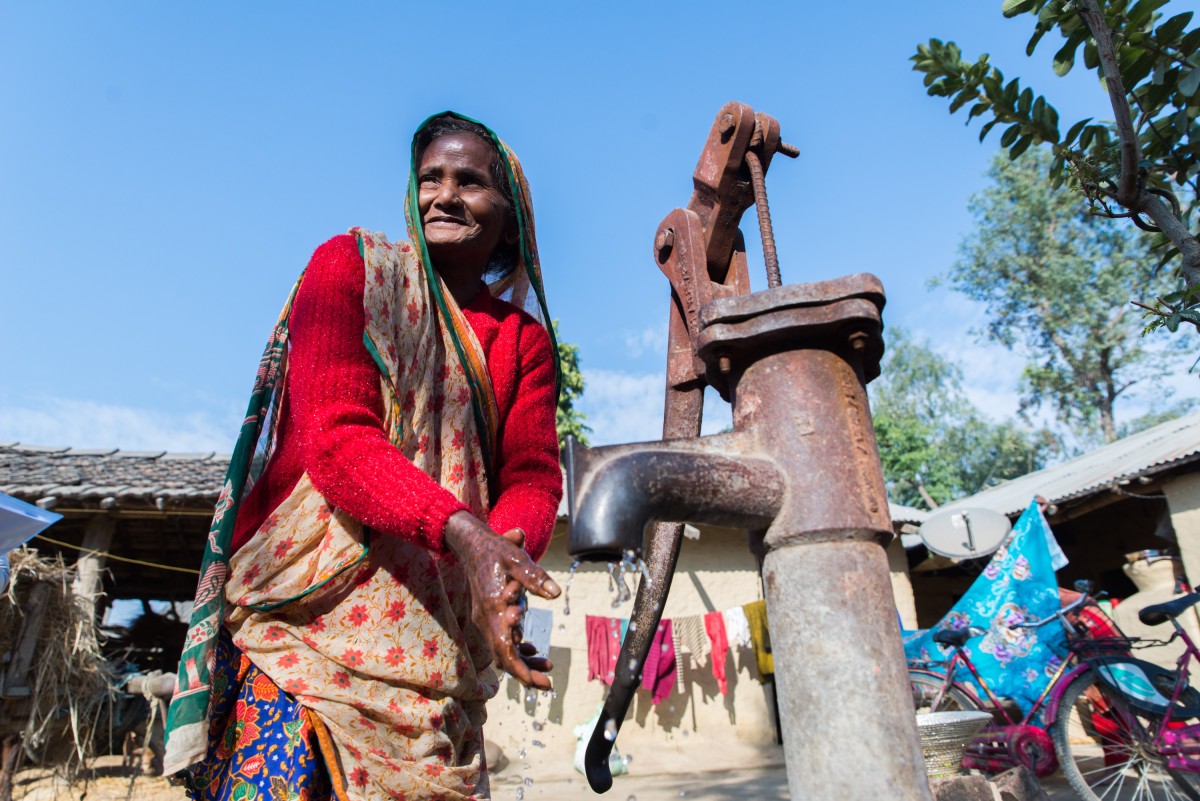
A message in a bottle
For World Water Day we travelled to The Hague to present a message in a bottle to the Ministry of Foreign Trade and Development Cooperation on behalf of the WASH SDG Consortium. Investing in water, sanitation and hygiene (WASH) is crucial for sustainable, fair and healthy socio-economic development. Today, 1 in 4 people still do not have access to clean drinking water and half of the world's population does not have access to a safe toilet. The Netherlands is a water country and a champion of achieving the Sustainable Development Goals (SDGs) 5, 6 and 13 regarding gender equality, WASH and climate adaptation.
The WASH SDG consortium is a collaboration of 11 Dutch organizations that have joined forces to improve access to clean drinking water and sanitation for the most vulnerable groups in seven countries in Africa and Asia. Successfully. Despite the COVID-19 pandemic, we are on track towards our goal of sustainably improving the use of safe drinking water for at least 450,000 people, improving sanitation for at least 2 million people and improving hygiene facilities for 1.6 million people.
The WASH SDG Programme is a six-year programme that works on improving access to, and use of, safe drinking water, sanitation, and hygiene in seven countries in Africa and Asia. The collaboration consists of SNV, WASH Alliance International and Plan International, and is financed by the Netherlands’ Ministry of Foreign Affairs. Within the programme, special attention is given to gender and social inclusion, climate vulnerability, and resilience. We work with local partners to achieve sustainable change.
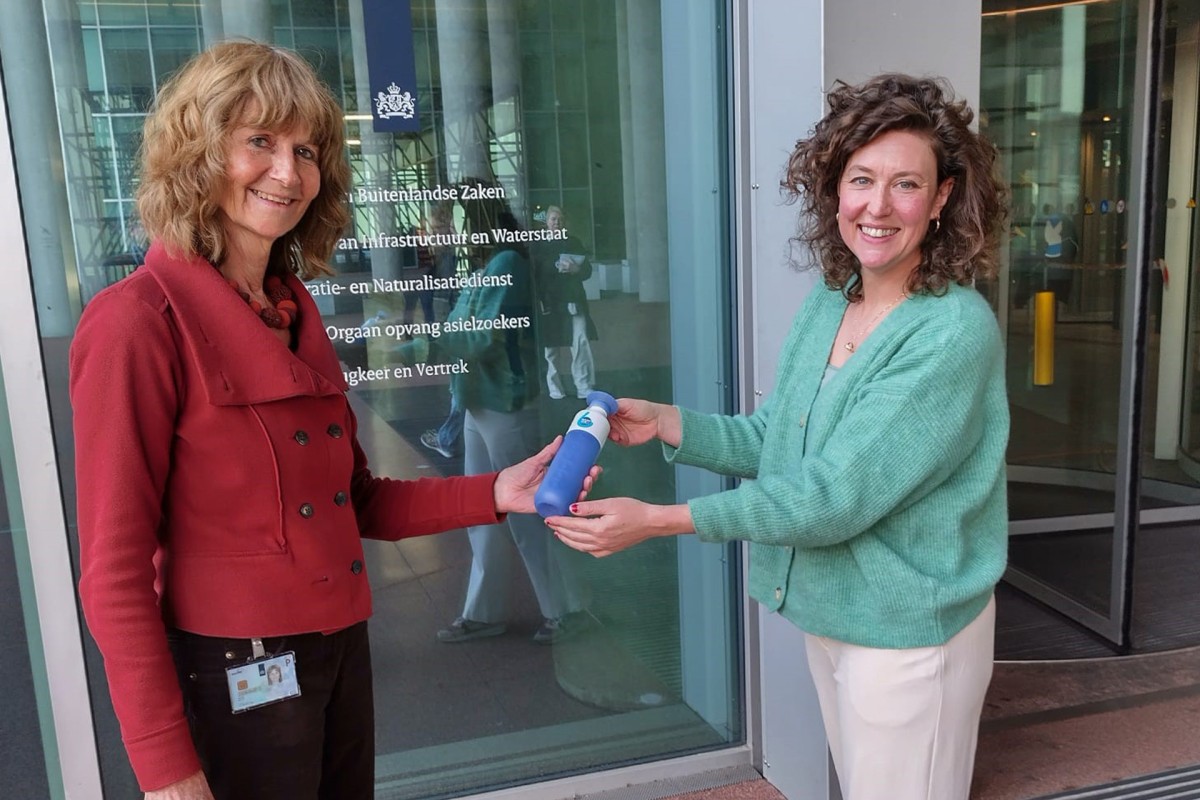
Working together with Dopper on water in Nepal
In Nepal we've been working together with our partner Dopper for years to make one of our biggest dreams come closer: to improve access to safe drinking water for people who need it most.
From the very first water bottle sold, Dopper has donated to the Simavi water projects in Nepal. They are part of the WASH project. By installing water points and toilets, thousands, even tens of thousands of Nepalese now have better access to clean drinking water and sanitation.
World Water Day is not celebrated for one day in Nepal, but for a whole week.
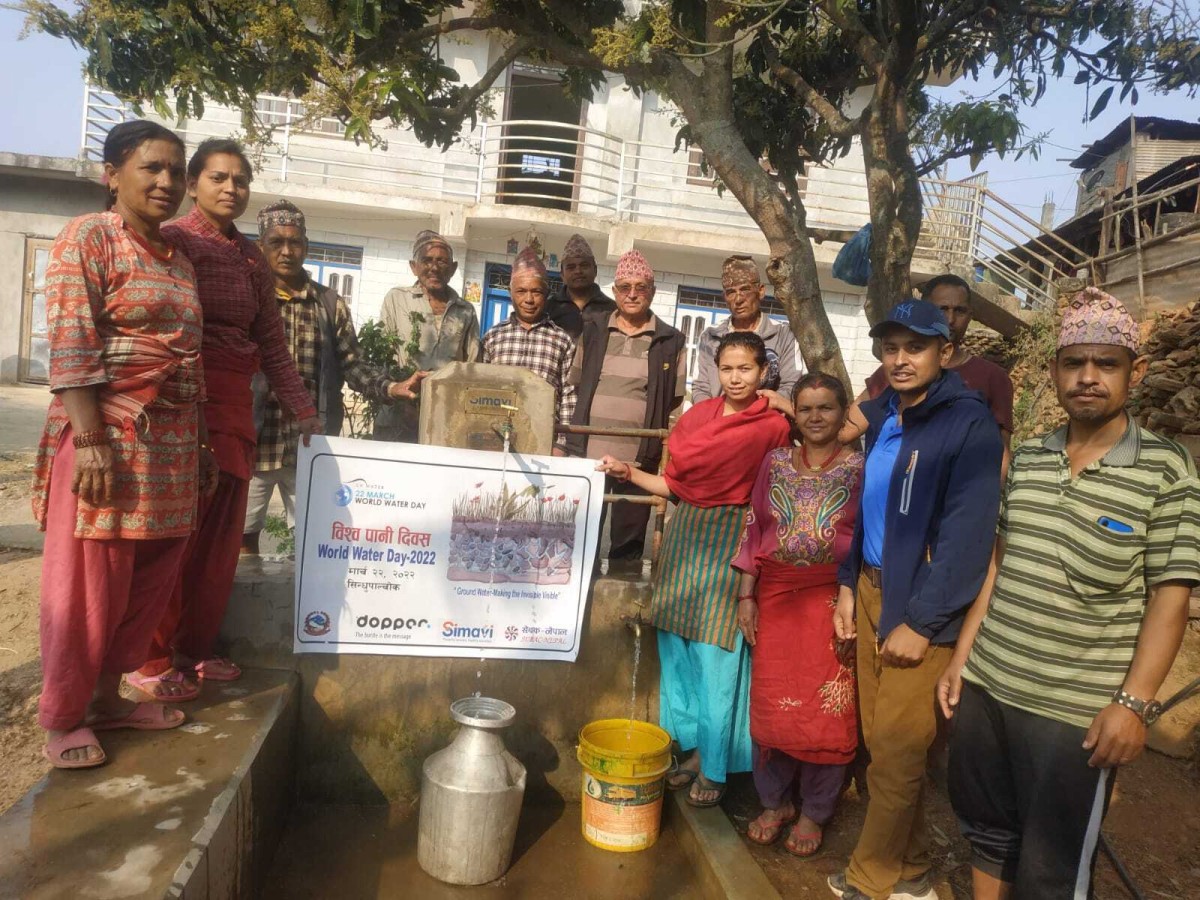
9th World Water Forum
Also this week the 9th World Water Forum will be held in Dakar, Senegal. A diverse group of participants, including decision-makers, water practitioners, academia, private sector actors and civil society organisations will discuss solutions for climate, water, and sanitation challenges.
Exactly a year from now, the UN Water Conference will be held in New York. Therefore, the coming 12 months will be crucial to come up with grassroots-driven solutions. The water train will make several stops on its way from Dakar to New York, with one of the most important ones being the UN Climate Summit (COP27) in November this year, which will be held in Sharm El-Sheikh, Egypt.
The climate crisis is a water crisis. Female grassroots leaders are not only at the frontline. Being hit hardest. Often, they are also the ones inventing, implementing and innovating solutions. Yet, they are too often excluded from decision making. In this World Water Forum too, space for civil society and grassroots-level activists is limited. This has to change! We say: female water leaders shall be in the driver seat. They know best how to solve their challenges.
Our Simavi advocates Rashidah Kulanyi (Uganda) and Patrick Mwanzia (Kenya) are attending the World Water Forum on behalf of Simavi. To co-create a movement and momentum for grassroots-driven water solutions. To mobilise fellow water activists towards the UN Climate Summit and UN Water Conference.
Uganda Water and Environment Week
In Uganda the Water and Environment Week is well on it's way. Simavi is present to, amongst others, showcase climate resilient latrines.
First edition
The WASH MELA was the first edition of its kind. This WASH innovation fair was held in Surkhet Nepal and was backed up by a diverse and engaging programme to highlight the importance of water and sanitation in the area. It was possible to directly connect with more than twenty innovative and enthusiast entrepreneurs, who had their WASH products and services displayed at the fair. From compostable menstrual pads to ceramic water filters and composting worms: if you want to get innovative and make improvements in WASH, Surkhet is the place to be.
You can read more on the fair, the innovations and the diverse audience on the WASH Alliance website.
